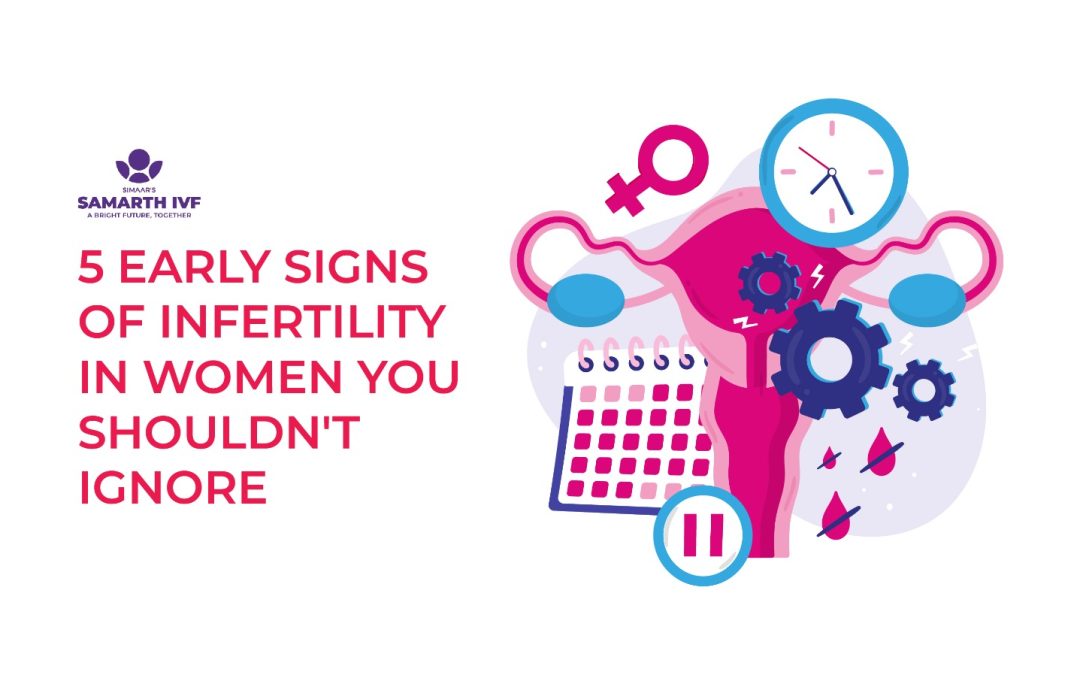Trying to conceive and start a family is a natural and exciting time for many women. However, for some, this journey can be filled with challenges, and infertility can become a source of stress and worry. While there’s no single definitive sign of infertility, some early indicators might suggest a need to consult a healthcare professional.
Here are 5 early signs of infertility in women you shouldn’t ignore:
- Irregular or Absent Periods:
- Regular menstrual cycles typically occur every 28-35 days. Significant deviations from this pattern, including irregular periods, prolonged cycles (exceeding 35 days), or skipped periods altogether, could indicate ovulation problems.
- Painful or Heavy Periods:
- While some women experience mild cramping during menstruation, excessively painful or heavy periods can be a cause for concern. This could be a sign of underlying conditions like endometriosis or uterine fibroids, which can sometimes affect fertility.
- Difficulty Maintaining a Healthy Weight:
- Unexplained weight fluctuations, particularly obesity or sudden weight loss, can disrupt hormonal balance and ovulation. Maintaining a healthy weight is crucial for overall health and can potentially improve fertility.
- Previous Pelvic Inflammatory Disease (PID):
- PID is an infection of the reproductive organs that can cause scar tissue formation and blockages in the fallopian tubes, hindering the sperm’s journey to the egg. If you’ve had PID in the past, it’s important to discuss it with your doctor to assess potential impacts on fertility.
- Age-Related Decline in Fertility:
- A woman’s fertility naturally declines with age. While healthy women in their early 30s still have good chances of conception, it’s important to be aware that fertility gradually decreases as you approach your late 30s and 40s
Remember, these are just some early signs, and not experiencing any of them doesn’t guarantee fertility. If you’re concerned about your fertility or have any of these signs, it’s important to schedule an appointment with your doctor or a gynecologist. Early evaluation and diagnosis can lead to a more effective treatment plan and potentially increase your chances of achieving a successful pregnancy.
